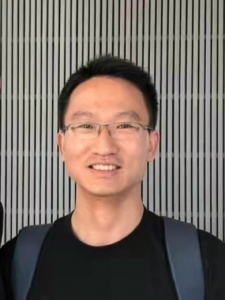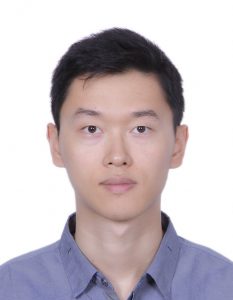Date&Time:15:40 – 17:40, December 28, 2021 Location: Meeting Room 2
Intro: Object re-identification is an important task for multimedia, computer vision machine learning. Great advances have been achieved in extensive areas with the deep learning technique. More and more emerging technologies were proposed both in academic and industrial domain to effectively process various challenges. This symposium will invite four speakers from academic research to industrial application to discuss some novel ideals in re-identification and their applications.
Organizer: Mang Ye (Wuhan University) and Zheng Wang (The University of Tokyo)
Agenda:
15:40-16:10
General Instance Re-identification: From Research to Applications
Wu Liu
16:10-16:40
Deep Metric Learning: From Person Re-identification to General Object-of-Interest
Yifan Sun
16:40-17:10
Thoughts about unsupervised representation learning for person re-identification
Yutian Lin
17:10-17:40
Weakly Supervised Person Re-identification
Ancong Wu
Title: General Instance Re-identification: From Research to Applications
Speaker: Wu Liu, JD AI Research, China.
Abstract: The general instance re-identification (re-ID), whose primary tasks are finding a specific person/vehicle/object of interest with the multimedia sensing data, has tremendous potential applications. However, the instance re-ID still faces the challenges of the guarantee of computing timeliness, the complex and instantly changed physical environments, the correlation discovery of massive multiple-modality data, and information security and privacy protection. To solve the challenges, we present a progressive search paradigm, which contains three important search strategies: 1) coarse-to-fine search in feature space; 2) near-to-distant search in spatial-temporal space; and 3) low-to-high permission search in the security space. The strategies all utilize simple features and computation to instantly reduce the search space, in which a complex matching process can be efficiently exploited to find the matched objects finely. Finally, we present our real-world produces implemented in the multimedia sensing network, which demonstrates the proposed progressive search paradigm can significantly improve the general instance re-ID speed and accuracy.

Biography: Dr. Wu Liu is a Senior Researcher in JD AI Research, China. His current research interests include human behavior analysis and intelligent video surveillance. He received his Ph.D. degree from the Institute of Computing Technology, Chinese Academy of Science in 2015. He has published more than 80 papers in prestigious conferences and journals in computer vision and multimedia. He received IEEE Trans. on Multimedia 2019 Prize Paper Award, IEEE Multimedia 2018 Best Paper Award, IEEE ICME 2016 Best Student Paper Award, 2021 MSA-TC Best Paper Award-Honorable Mention, and Chinese Academy of Sciences Outstanding Ph.D. Thesis Award in 2016, etc. He also won the 1st Place in the single and multi-person pose estimation tasks in CVPR 2018 Look into Person Challenge, and the 2020 National Artificial Intelligence Competition for Rerson Reidentification. Dr. Liu is the founding committee member of ACM FCA, and the committee member of IEEE CASS-MSA. He has also served as the Technical Program Chair of ACM MM Asia 2021, Web Chair of ICME 2019, Publicity Chair of BIGMM 2018, Industrial Chairs of ChinaMM 2020&2021, and the Area Chairs of ACM MM 2019-2021, AAAI 2021, ICME 2019, ICIP 2017, etc. Wu Liu also organized the three workshops in ACM MM 2021&2020 and IEEE ICCV 2021, three tutorials in ACM MM 2020, IEEE ICME 2019 and ACM MM Asia 2019, and four special issues in IEEE TCSVT 2021,ACM TOMM 2021, MVA 2018, and MTAP 2019.
Title: Deep Metric Learning: From Person Re-identification to General Object-of-Interest
Speaker: Yifan Sun, Baidu Research
Abstract: Person re-identification shares a common keynote, i.e., deep metric learning, with many other computer vision tasks including face recognition and fine-grained image retrieval. Moreover, some recent works on semantic segmentation, video object segmentation and even the unsupervised pre-training also witness the benefit of deep metric learning viewpoint. In this talk, we are to extend the scope from the pedestrian in person re-identification to general object-of-interest, as well as to uncover some novel characteristics of deep metric learning.

Biography: Yifan Sun is currently a senior expert at Baidu Research. He received the B.E. degree and M.S. degree from Tsinghua University in 2005 and 2008, respectively. He received the Ph.D. degree in information and communication engineering from Tsinghua University in 2019. His research interests focus on deep metric learning, long-tailed visual recognition, domain adaptation and generalization. He has publications on many top-tier conferences/journals such as CVPR, ICCV, ECCV, NIPS and TPAMI. His papers have received over 3000 citations and some of his researches have been applied into realistic AI business.
Title: Thoughts about unsupervised representation learning for person re-identification
Speaker: Yutian Lin, Wuhan University
Abstract: Recently, researchers demonstrated that unsupervised learning with large-scale unlabeled training data has the ability to outperform supervised learning on various tasks. With the success of deep learning, self-supervised learning and contrastive learning, unsupervised person re-identification (Re-ID) has achieved increasing attention and made promising achievements in recent years. However, there is still a large gap between the unsupervised and supervised Re-ID especially on challenging dataset. In this talk, I will introduce our recent efforts towards this goal and show the recent developments and challenges in unsupervised person re-identification.

Biography: Dr Yutian Lin is an associate professor in the School of Artificial Intelligence, Wuhan University. She obtained her B.S degree (2016) from Zhejiang University and obtain the Ph.D degree (2019) from the University of Technology Sydney under the supervision of Prof Yi Yang. Her research interest includes unsupervised learning, person re-identification and related applications. She makes some early attempts in unsupervised person re-identification, and her works are positively received by the community. She serves as Senior PC in IJCAI 2021, and served as a reviewer for CVPR, ICCV, ECCV, ICML, NIPS, AAAI, TIP, TNNLS, etc.
Title: Weakly Supervised Person Re-identification
Speaker: Ancong Wu, Sun Yat-sen University
Abstract: There has been impressive progress in person re-identification (Re-ID) in recent years. However, a large amount of annotations or closed-world data collection scenarios are required for most existing approaches. When extending to large-scale surveillance systems, limited annotation costs and open-world data collection scenario bring new challenges for existing Re-ID methods. Weakly supervised person re-identification has been studied for three types of weak supervisions: incomplete supervision (few labeled samples), inexact supervision (set-level and intra-camera annotations) and inaccurate supervision (noisy label). This talk will briefly introduce the developments and possible future directions of weakly supervised person re-identification.

Biography: Dr. Ancong Wu is a postdoc in Intelligence Science and System Lab (iSEE) of Sun Yat-sen University. He received Ph.D. degree in information and communication engineering from Sun Yat-sen University in 2020. His research interest is computer vision and related applications in person re-identification. He has published over 20 papers on person re-identification, including IJCV, TIP, CVPR, ICCV etc. He is the recipient of China National Postdoctoral Program for Innovative Talents and selected as one of the 2021 global top 100 Chinese rising stars in artificial intelligence by Baidu talent program committee..